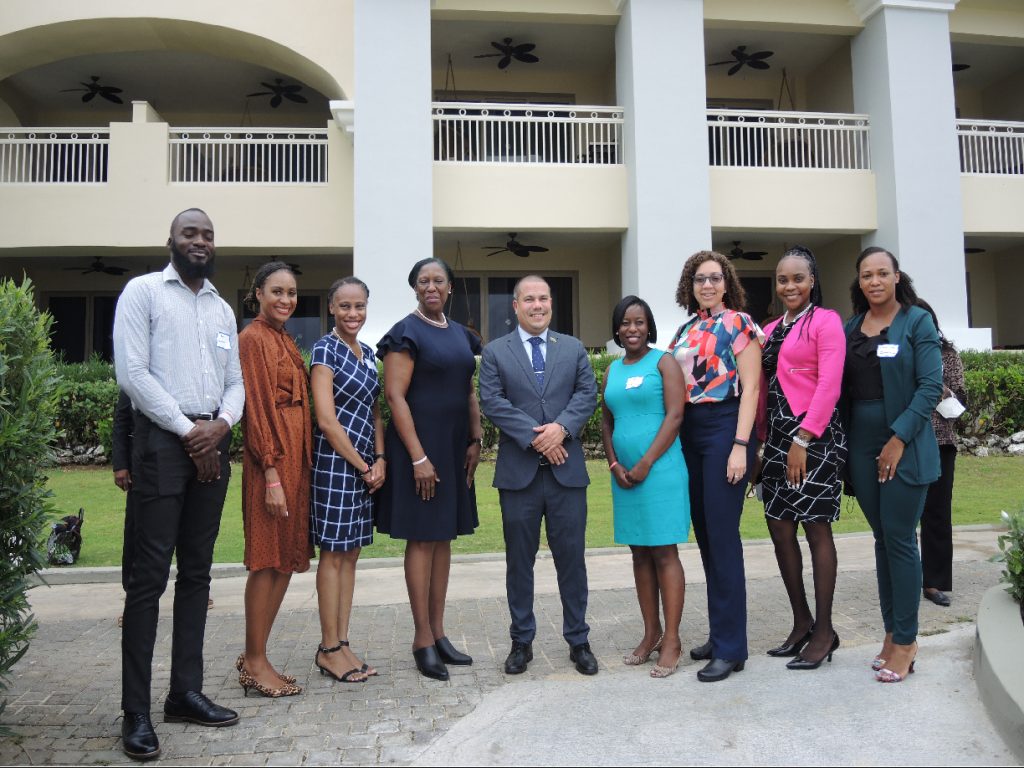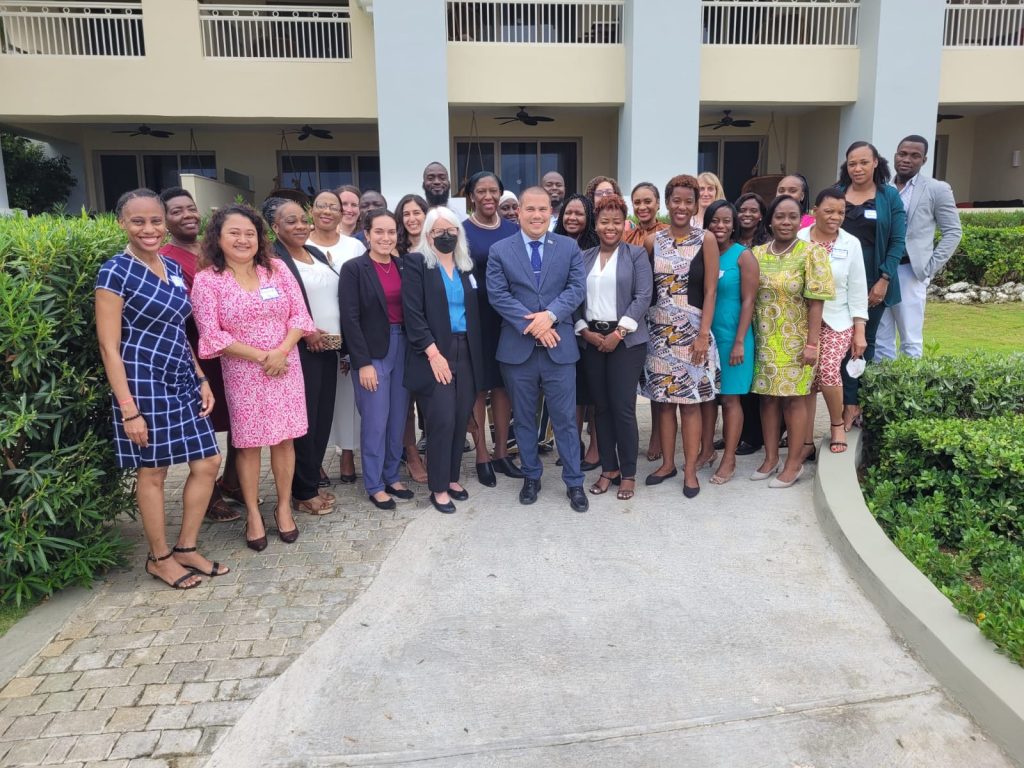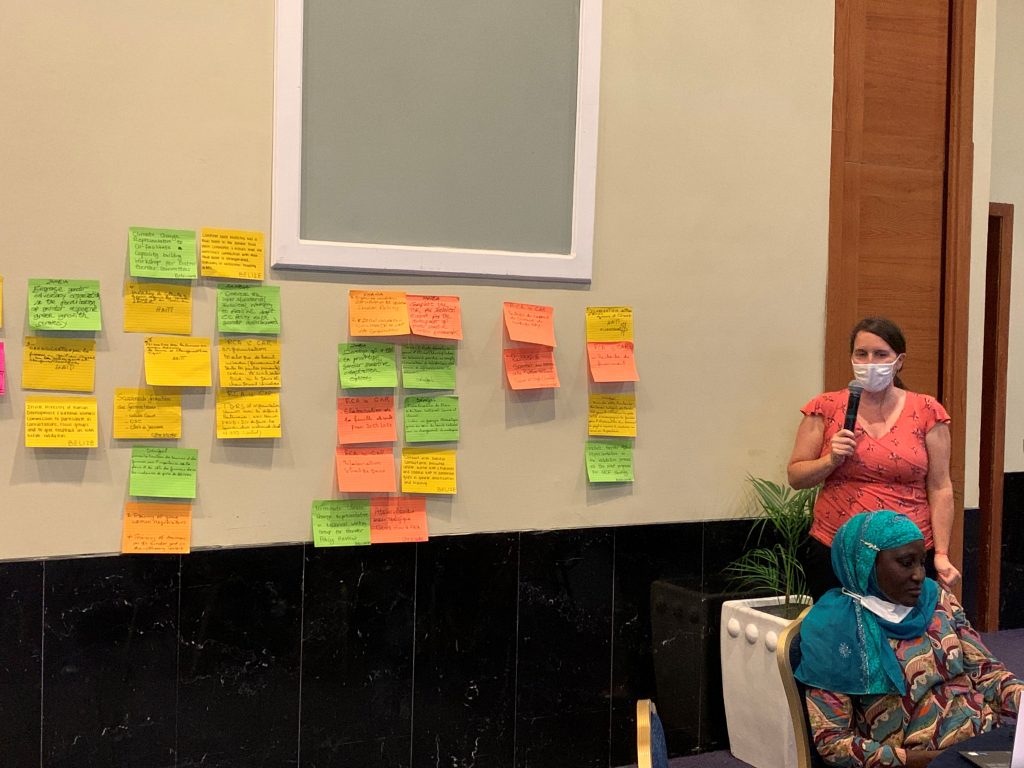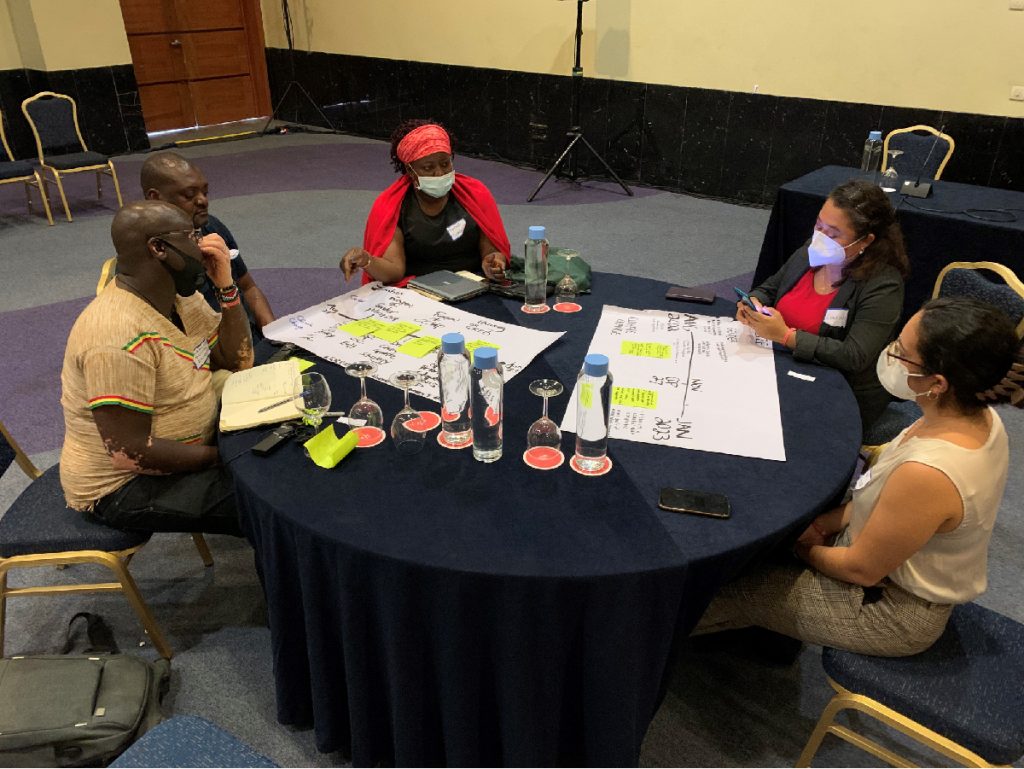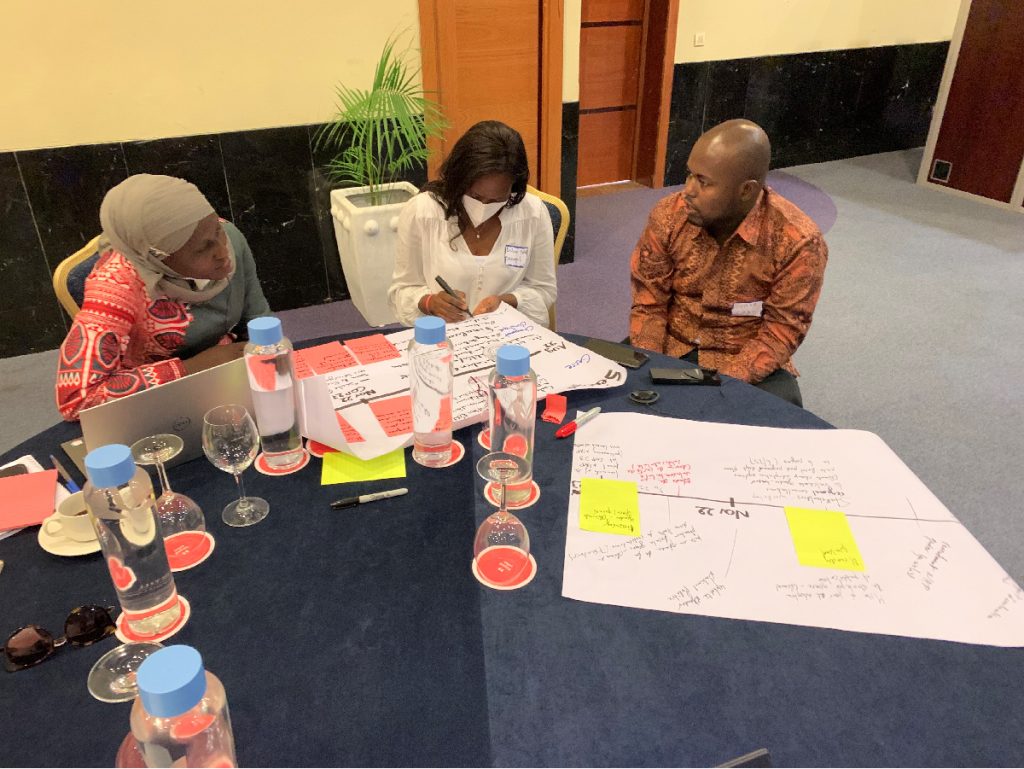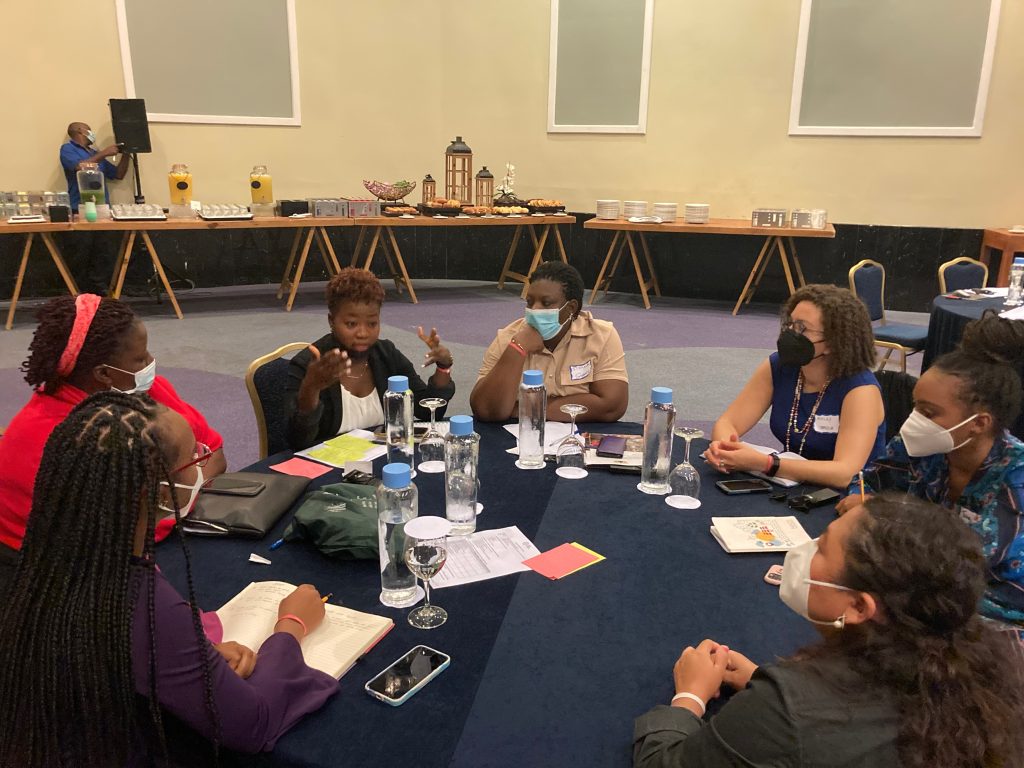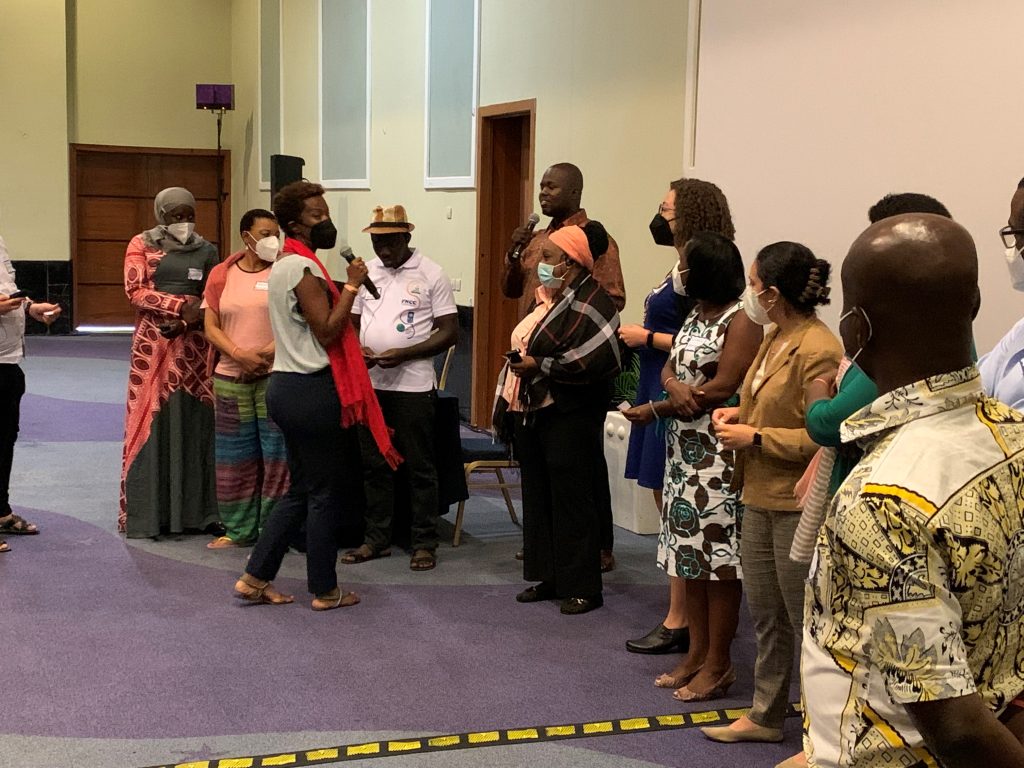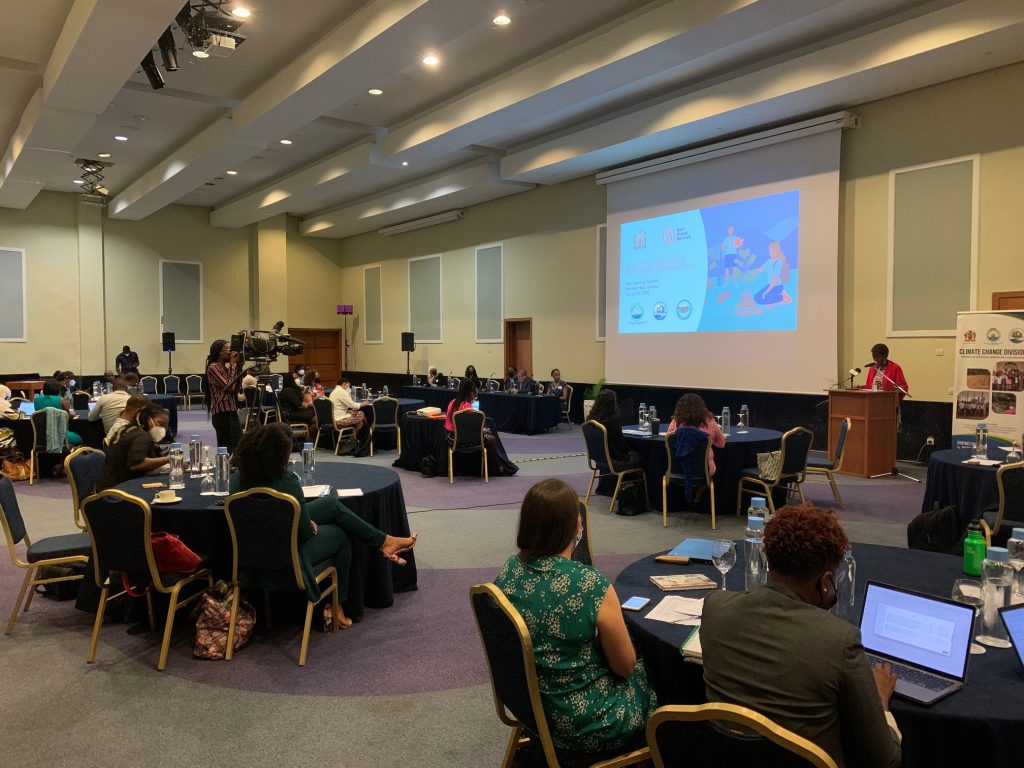Experts and government representatives from 10 countries in sub-Saharan Africa (Botswana, Central African Republic, Chad, Cote d’Ivoire, Ghana, Senegal, and Zambia) and the Caribbean (Belize, Jamaica, and Haiti) gathered in Montego Bay, Jamaica, to share lessons and experiences on promoting gender equality through climate change adaptation.
Co-hosted by the NAP Global Network and the Government of Jamaica, with funding from Global Affairs Canada, this Peer Learning Summit aims to strengthen the National Adaptation Plan (NAP) processes in these countries by sharing knowledge on gender-responsive approaches. Going beyond a sensitivity to gender differences, a gender-responsive NAP process seeks to actively promote gender equality throughout adaptation planning, implementation, and efforts to track progress.
The summit convened national climate change decision-makers and gender experts to work together to:
- Better understand how climate change adaptation and gender equality can be linked, taking an intersectional approach.
- Discuss the opportunities and challenges related to integrating gender considerations in NAP processes.
- Identify concrete next steps toward more gender-responsive NAP processes in their respective countries.
“A gender lens is an incredibly important part of planning for climate change adaptation to build resilience. Jamaica has been actively working to bring gender considerations into development and climate policy for many years, and we are delighted to host this international summit to share our experiences and learn from our peers.”
UnaMay Gordon, Principal Director of the Climate Change Division, Government of Jamaica.
“Our recent synthesis report on gender-responsive NAP processes demonstrates that countries in the Global South are making progress in applying gender-responsive approaches to their national adaptation planning and actions. These countries demonstrating an ambition for gender-responsive climate action will especially benefit from the exchange of knowledge at next week’s Peer Learning Summit.”
Angie Dazé, Lead on Gender Equality, NAP Global Network Secretariat.



